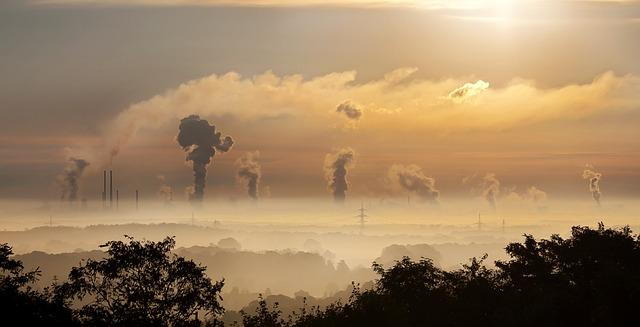Does the Air Quality in Utah Affect My Health?

Does the Air Quality in Utah Affect My Health?
Utah is a strikingly beautiful place to live and offers much for those who love the outdoors. However, if you’ve spent much time in Utah, you’ve probably experienced the periodic weather inversions occurring during the winter that causes trapping of emissions and small particulates into the valley. During these times, Utah has some of the poorest air quality in the country.
Normally the air closer to the ground is warmer and gets colder at higher altitudes. During inversions, the snow-covered valley reflects heat (instead of normally absorbing heat), inverting the typical conditions. Because of the landscape of the Wasatch Front, the warmer air acts as a lid on our valley, keeping pollution trapped in the valley, along with the colder air.
Ozone is the primary pollutant during hot, sunny days. Higher concentrations occur in urban areas where there are more air pollutants. During the summer, ozone levels can be quite high as well, exposing us to ozone pollution.
It is known that the quality of our air has diminished over time. Research has demonstrated a strong association with poor air quality and the development of allergic conditions and asthma. Thus, allergic diseases and respiratory problems are becoming more prevalent in our day.
Research has also demonstrated that air pollution can worsen asthma symptoms and increase Emergency Room visits. In Utah, a striking correlation to air pollution and severe pneumonia has also been demonstrated.
The air quality may be affecting you if you are experiencing:
- Cough, chest tightness, wheezing, congestion, throat soreness or irritation
- Shortness of breath or difficulty breathing with exercise
- Flares of an underlying respiratory disease, such as asthma or chronic obstructive pulmonary disease (COPD)
So, what can be done to keep yourself healthy?
Having awareness is key, particularly if you are at higher risk of complications related to exposure to poor air quality. There are several sites and apps devoted to monitoring of air quality, which changes not only day to day, but also changes depending on the time of the day, as does the temperature.
The Utah Division of Air Quality provides alerts to make us aware of moderate or severe days when time outdoors should be limited. A three-day forecast is provided and alerts can be received at http://air.utah.gov/forecast.php?id=slc.
During winter months, pollution levels build until storms or weather come through that clear the air. It is best to do your outside exercise on these days. During the summer, ozone levels are lowest in the early morning, later in the evening and at night.
Despite the unique situation of our state, we want you to be able to enjoy the outdoors during all seasons. While we can all take individual precautions to help improve the quality of our air in Utah, if you feel that the air quality is affecting you negatively, please schedule a consult. We can assess your lung function and help you manage any underlying disease so that you can feel healthy throughout the year. Allergy Associates of Utah is an allergy, asthma, and immunology specialty clinic serving the greater Salt Lake City, Utah area with 2 convenient locations in Sandy and West Jordan. Led by specialists Andrew Smith, MD, MS, and Tara Sarin, MD, the practice strives to help people of all ages and background achieve success. Request an appointment by phone or online at either Allergy Associates of Utah location for expert allergy and immunology care today.
Phone: (801) 263-8700
Phone: (801) 282-8700
 (232 reviews)
(232 reviews)